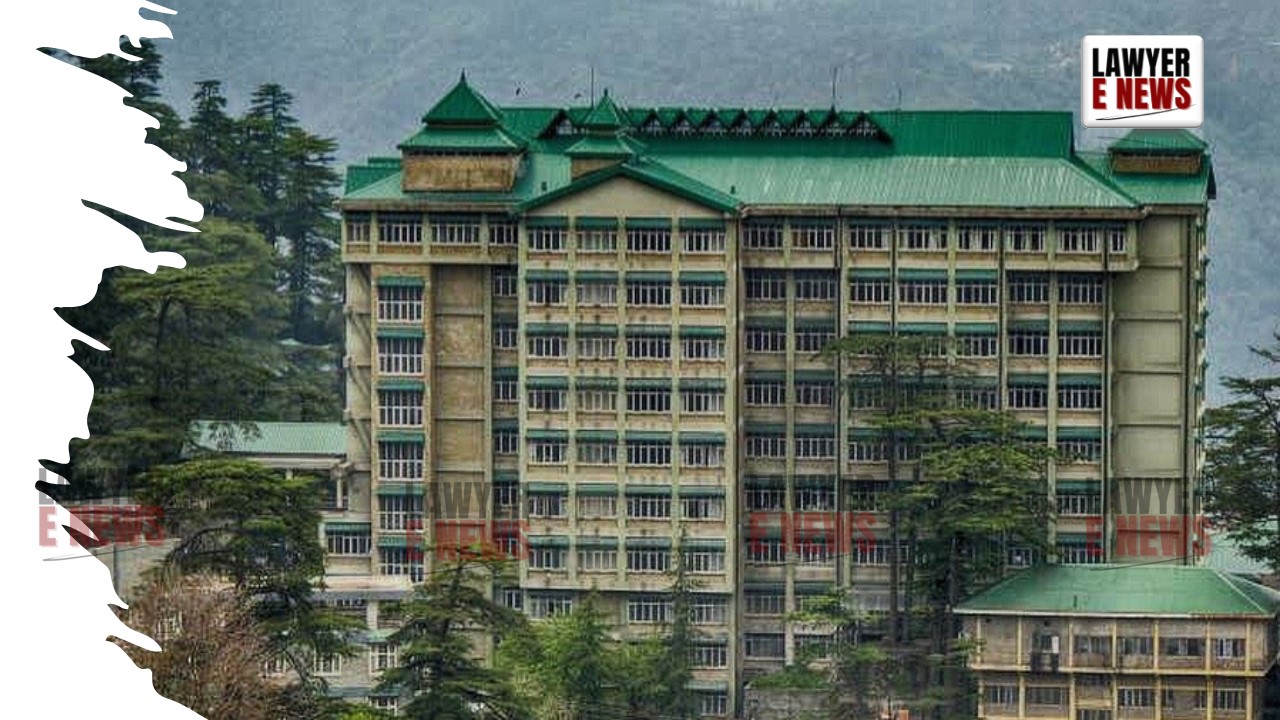-
by Admin
15 February 2026 2:36 AM



In a landmark decision emphasizing the reformative approach to justice, the Himachal Pradesh High Court on November 18, 2024, upheld the conviction of Joginder Kumar, a bus driver, for rash and negligent driving that caused catastrophic injuries to a pedestrian in Manali in 2009. While confirming his guilt under Sections 279 and 338 of the Indian Penal Code (IPC), the court, led by Justice Sushil Kukreja, set aside the six-month rigorous imprisonment and instead granted probation to the petitioner under the Probation of Offenders Act, 1958.
This judgment highlights the court’s nuanced approach to balancing the accountability for criminal conduct with the potential for rehabilitation, especially for first-time offenders.
The case stemmed from a tragic road accident that occurred on January 30, 2009, near the Manali Bus Stand. Joginder Kumar, driving an HRTC Volvo bus, struck a pedestrian, Tek Chand, while allegedly driving at high speed in a rash and negligent manner. The injured victim suffered life-altering injuries, with one leg amputated below the hip and the other badly damaged, resulting in months of hospitalization.
Following the incident, an FIR was registered under Sections 279 (rash driving) and 338 (causing grievous hurt by act endangering life or personal safety) of the IPC, along with Section 196 of the Motor Vehicles Act. After a detailed investigation, Joginder Kumar was charged and later convicted by the Judicial Magistrate in Manali on July 6, 2011. He was sentenced to six months of rigorous imprisonment and fined ₹1,000 for each offense.
Joginder Kumar appealed his conviction and sentence to the Sessions Court in Kullu, which dismissed the appeal on November 28, 2011, affirming the trial court’s findings. The Sessions Court held that the prosecution had proven beyond reasonable doubt that the petitioner was driving rashly and negligently, resulting in the accident and grievous injuries to Tek Chand.
Aggrieved by the appellate court’s decision, the petitioner moved the High Court in revision, challenging both the conviction and the sentence.
The High Court, while exercising its revisional jurisdiction under Sections 397 and 401 of the Code of Criminal Procedure, refrained from reappreciating the evidence in detail, as is the norm unless the findings of the lower courts are shown to be perverse or grossly erroneous. Justice Kukreja, relying on precedents such as Amit Kapoor v. Ramesh Chander (2012) and Kishan Rao v. Shankargouda (2018), held that there was no material defect or error of law in the lower courts’ judgments.
The court noted that the injured victim’s testimony (PW-7) was reliable and carried higher credibility, as it was corroborated by medical evidence and other prosecution witnesses. The injured witness, Tek Chand, had testified that the bus struck him while he was standing at the Manali Bus Stand, crushing his legs under the front tire. His testimony was further supported by PW-10, the medical officer, who confirmed the nature of the injuries.
While the petitioner argued that the accident occurred due to the crowded bus stand and not due to his rash driving, the court found no merit in this defense. Testimonies from defense witnesses, including the bus conductor, were deemed unreliable as they failed to provide any substantive evidence to refute the prosecution's case.
The court upheld the petitioner’s conviction under Sections 279 and 338 IPC, emphasizing that rash and negligent driving, particularly in public spaces, cannot be condoned. However, Justice Kukreja took a reformative view while addressing the sentence.
The petitioner’s counsel argued for leniency, pointing out that the petitioner was a first-time offender with no criminal history and the sole breadwinner for his family. The petitioner had been facing the legal proceedings since 2009, a fact that weighed in his favor.
The High Court called for a report from the Probation Officer, who recommended releasing the petitioner on probation due to his good conduct since the incident. Relying on principles laid down by the Supreme Court in cases like Mohammad Giasuddin v. State of Andhra Pradesh (1977) and Satish @ Sabbe v. State of Uttar Pradesh (2020), the court observed that a civilized society should focus on rehabilitating first-time offenders rather than adopting a purely punitive approach.
While upholding the conviction, the court set aside the six-month rigorous imprisonment imposed by the trial court. Instead, Joginder Kumar was ordered to be released on probation of good conduct for two years under Section 4(1) of the Probation of Offenders Act, 1958.
The court directed the petitioner to furnish a personal bond of ₹50,000 and one surety of the same amount to the satisfaction of the trial court. The probation conditions required the petitioner to maintain good behavior and peace for the duration of two years. The court warned that any violation of these conditions would result in the petitioner being called back to serve the original sentence.
Date of Decision: 18 November 2024
